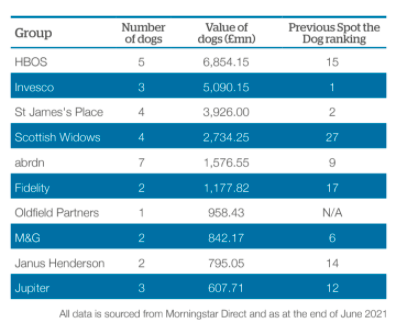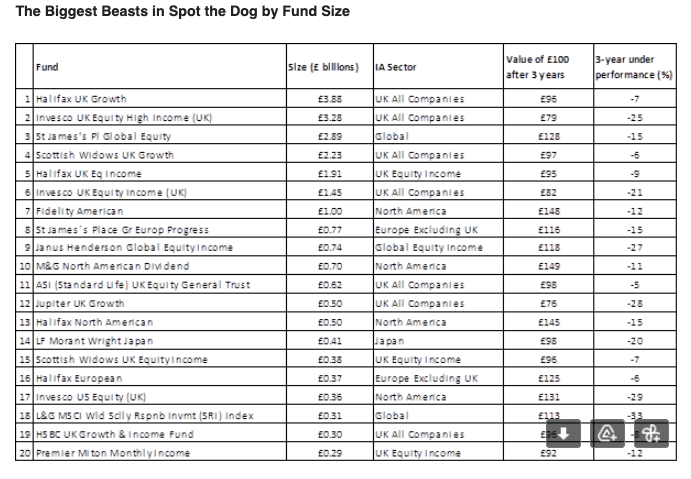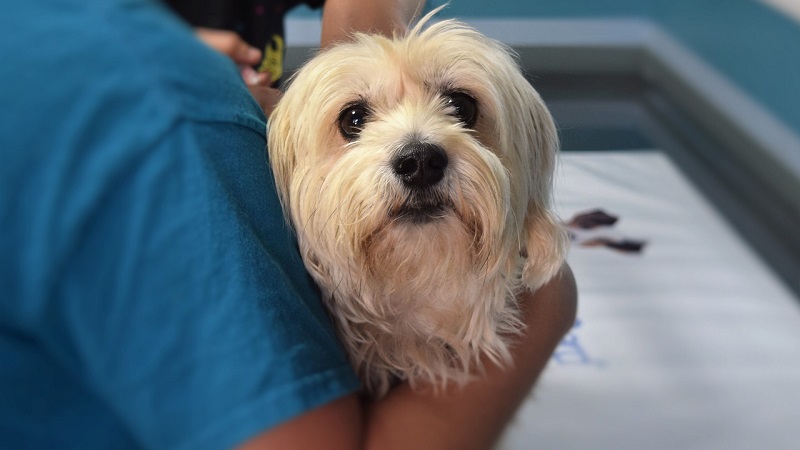Money tied up in underperforming funds has nearly halved in the last six months, according to the latest Spot the Dog report, as fund groups face tougher scrutiny to justify the value they provide to customers.
The twice-yearly report from Bestinvest indicated a dramatic drop in the number of “dog” funds, those that have underperformed the market more than 5% after fees over three years.
Only 77 funds were named and shamed in the latest issue, down from 119 identified in January and the “barking” 150 funds flagged a year ago. This was the lowest number of poorly performing pooches in the kennel since the summer of 2019.
As a result, the level of assets held in the offending mutts has nearly halved from £49.6bn to £29.5bn in the last six months.
However, there were seven beefy Saint Bernards, each holding over £1bn of investors’ cash.
Value rotation helps beleaguered managers out of the doghouse
Bestinvest managing director Jason Hollands said the global recovery from the coronavirus crash in early 2020 and the rotation into cheap, value stocks following the Covid vaccine trials last November has enabled many previous offenders to claw their way out of the doghouse.
JP Morgan disappeared from Bestinvest’s list of worst offenders this time around, while M&G saw assets trapped in dog funds shrink from £3.1bn to £842m.
Jupiter, which previously landed in the doghouse thanks to its acquisition of rival Merian, also saw an improvement six months later, with its underperforming funds falling from eight to three.
Schroders also dropped off the list of top 10 worst offenders, with assets in its own-branded funds falling from £4bn to £292m. However, Bestinvest noted its “paw mark” was still on the funds it advises for Halifax Bank of Scotland (HBOS) and Scottish Widows. HBOS was the worst offender in the latest report, boasting five dog funds valued at £6.9bn.

See also: Merian acquisition sends Jupiter to the dog house with £4.1bn of underperforming funds
Senior management changes at Invesco rescue dog funds
Hollands also viewed the lower number of mutts as a sign “fund groups are upping their game”.
With firms now required by the Financial Conduct Authority to demonstrate how their funds are offering value for money, many have made wholesale changes to their investment teams.
Bestinvest identified Invesco as one group benefiting from senior manager shake-ups. After being the top dog six times in a row, the Henley-based investor fell to second in Bestinvest’s hall of shame with three dog funds worth £5.1bn. Six months prior it had 11 funds worth £9.2bn in the kennel.
Since chief investment officer Stephanie Butcher took the reins in 2020 a handful of senior managers with disappointing performance have left the fund group, including Neil Woodford’s protégé Mark Barnett, European equities manager Jeff Taylor and Invesco Japan manager Paul Chesson.
While some of Invesco’s former laggards, like the Invesco European Equity and Invesco Global Equity funds, have turned performance around, Barnett’s former UK Equity High Income and UK Equity Income funds “have proved particularly difficult to tame” despite being under new leadership since last May, Bestinvest noted.
See also: Mark Barnett’s former Invesco funds continue to bleed cash
The £3.2bn Invesco UK Equity High Income fund was the second largest fund in Bestinvest’s list of laggards, with three-year underperformance of 25%, while the £1.5bn Invesco UK Equity Income fund was sixth, underperforming by 21% over the timeframe.
“We recognise these as tough conditions to train a badly behaved pooch and commend Invesco on its success in other sectors,” Bestinvest said.
SJP remains in the hall of shame
Other managers showed little improvement, despite the global economic rebound.
St James’s Place continued to lurk near the top of Bestinvest’s hall of shame in third place with four funds totalling £3.9bn.
The £2.9bn SJP Global Equity fund remained one of the biggest laggards in the report, underperforming its benchmark by 15% over three years. Its chihuahua sized SJP Japan Unit trust, which has £150m in assets, was flagged as one of the worst performers, lagging the market by a massive 34% over the period.
SJP criticised Bestinvest’s analysis of not making accurate like-for-like comparisons. SJP’s fund performance is shown net of all charges, including ongoing advice and administration, so it is unfair to compare it against others in the list which are not calculated in the same way, a spokesperson said.
However, it was HBOS that really fell short in the latest report with five of its funds in the kennel, up from three in the previous edition. The £3.9bn Halifax UK Growth fund was the biggest beast in the entire report, followed closely by the £1.9bn Halifax UK Equity Income fund, which was the fifth biggest laggard.
Bestinvest noted it was disappointing to see a pair of Great Dane-sized UK funds perform so poorly at a time when equity markets are up and dividends have improved.
Scottish Widows UK Growth, which also counts Schroders as its adviser, was among the top five biggest duds as well.
A spokesperson for Schroders said: “We regularly review our investment performance in order to ensure we understand the reasons for underperformance and whether action is required to improve outcomes for our investors.
“Overall, this report reflects the ongoing strong outperformance we are achieving for clients and, as a long-term investor, we are confident that we will repay our clients’ commitment by navigating any short-term challenges to deliver returns well into the future.”












